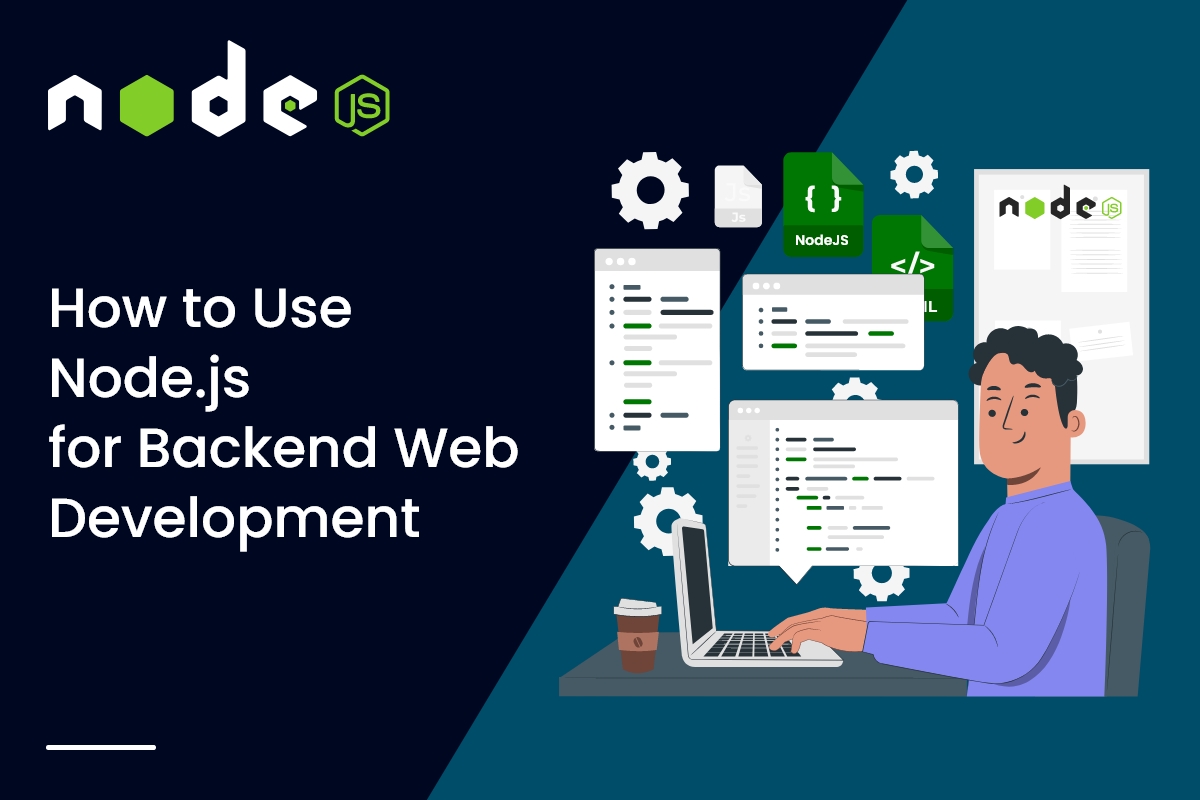How to Develop Backend Web Applications with Node.js in 2023
A server-side platform for Node.JS development is built on Google Chrome's JavaScript Engine. The most recent version is v0.10.36 and Ryan Dahl created it in 2009. To build a website with node.js this is a cross-platform runtime environment. JavaScript is used to develop Node.js programs, which can then be run on Linux, OS X, and Microsoft Windows using the Node.js runtime. The extensive collection of JavaScript modules included with Node.js also makes it much simpler to create Node.js web apps.
Rather than creating a new thread for every request, the Node.js program runs in a single process. As a result of the standard library's collection of asynchronous I/O primitives, which forbid JavaScript code from blocking, and the wide use of non-blocking paradigms in Node.js libraries, blocking activity is the exception rather than the rule in Node.js. Node.js programming is now experiencing explosive growth in popularity. Node.js is currently used by numerous well-known businesses, including Netflix, Uber, PayPal, Twitter, and more.
Is Node.js Used for Front-end or Backend?
Developers frequently regard Node.js as a backend framework that is used solely when developing servers. This is untrue; both the front end and the back end of web development may use Node.js. One of the reasons Node.js frameworks are a popular option for programmers creating a flexible and scalable backend is because they are event-driven and non-blocking.
Node.js is appropriate for both backend and frontend development for a number of reasons, including:
- Reusability
Thanks to the frameworks like Express.js and Meteor.js as JavaScript is a language that is used to develop both backend and frontend programming Some popular stacks, like MERN (a Node.js framework), use Express.js as their backend. Multiple components can be reused between the front end and the back end.
- Efficiency and Productivity in Developers
The time consumed by developers transmitting between different languages' contexts can be significantly reduced. Using JavaScript for both the backend and the front end optimises efficiency because many technologies are similar for both.
- Large Community
An evolving online community's existence impacts how quickly a development cycle moves forward. Most of the time, Stack Overflow users have already fixed the problems and provided suggestions when anyone gets stuck. This community, which is engaged and active when it comes to the runtime and its packages, makes considerable use of the well-known runtime Node.js.
- Node.js Frameworks
Various frameworks have been developed to assist in the completion of tasks that are continuing to be difficult for Node.js to manage.
Some of the most popular Node.js development frameworks are the ones listed below:
- Nest.js
This is a significant framework for Node.js development services, ideal for building enterprise-level projects. There are many libraries that it contains that implement Typescript, Model-View-Presenter (MVP), integrated Object-Oriented Programming (OOP), Function-Point (FP), and Functional-Reactive Programming (FRP) principles.
- Express.js
It is a compact, lightweight framework with an extensive variety of HTTP helpers. Developers who don't need a time-consuming and expensive development process employ it. Furthermore, it's excellent for developing web, mobile and API applications.
- Socket.io
It is relatively easy to use on a range of platforms because of its usability. Bi-directional real-time networking is its main focus. Multiplexing, binary, and reconnection are also supported.
- Meteor.js
Real-time functionality, dynamic imports front-to-back communication, and API security are made possible as a result of this.
- Koa.js
This uses asynchronous techniques to streamline error handling and boost application performance.
- Loopback.io
It offers several features that facilitate the process, allowing developers & Node.js web development company to establish APIs rapidly. Storage services and ad-hoc queries are equally supported. It supports a number of well-known databases in addition to a range of REST APIs.
Benefits of Backend Web Development with Node.js
- Provides Simple Scalability for Modern Applications
The ability of web projects built with Node.js to multitask is quite useful. Its single-threaded, event-driven architecture successfully handles several concurrent requests without clogging RAM, in contrast to other platforms. Code can be run at a rate that considerably boosts the application's overall speed thanks to the event-loop and non-blocking I/O operations. To increase Node.js speed, Google has launched the V8 benchmark, which brings faster execution, better compilers, security patchworks, and the ability to scale. Hire technicians to build a website with node.js.
- Aids in the Development of Cross-Functional Teams
One of the features of cutting-edge technology is the cluster module. It enables it to be relatively easy to accomplish desired effects with a lesser amount of modules without using up all the RAM because it permits load balancing across several CPU cores. The non-blocking event-loop structure used by Node.js also enables exceptional scalability and speedy response times for the server.
- Enhanced Performance and App Response Time
Node.js's full-stack development capabilities enable a Node.js firm to put together a team that focuses exclusively on enhancing the development life cycle and promptly addressing issues. Their ability to effectively resolve and address issues is enhanced by the work environment. The time to market will undoubtedly be shortened as a result.
What Makes Node.js So Popular?
Node.js is a constantly evolving and thrilling environment that has the potential to address and reduce many of the problems that an app team may encounter with Node.js development services. Many programmers ought to start realising its significance in the upcoming years. Numerous companies have chosen Node.js for developing their applications and they have already had great success. Developers are utilising Node.js to expand their horizons and acquire full-stack skills rather than limiting themselves to the limits found in traditional functional teams.
Because of Node.js's growing reputation, community, and use cases, its advantages are probably going to surpass our expectations.
Conclusion
A great tool for creating scalable as well as successful online applications is node.js development. The advantages of Node.js are acknowledged by developers as well as businesses. It offers the ideal blend of speed, size, and performance, enabling use cases essential for online development. Using Node.js may greatly enhance your applications.
We trust that this article was able to fully explain Node.js's purpose, key characteristics, significance, and how we may use it in our software app development projects.
Hiring a top Node.js web development company might be a smart place to start for your business if you need additional information on Node.js trends and concept understanding.




Comments
Post a Comment